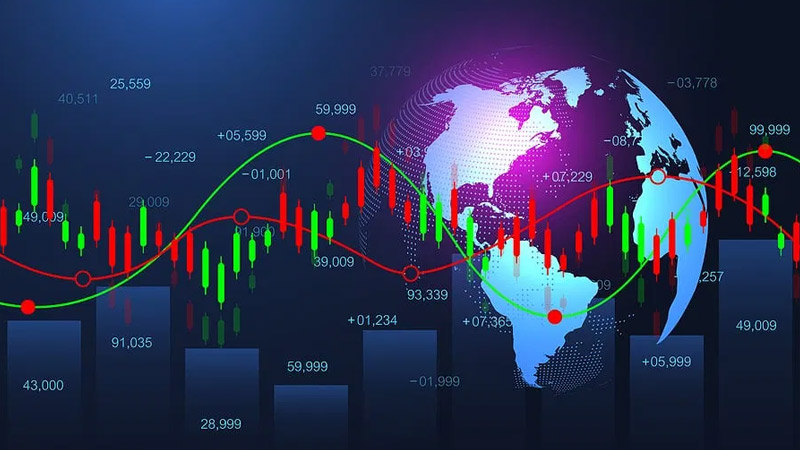Forex trading, or the trading of foreign currencies, has gained immense popularity among investors due to its potential for high returns, around-the-clock trading hours, and the liquidity of the forex market. However, achieving consistent success in forex trading requires a combination of knowledge, skill, discipline, and effective strategies. This comprehensive guide will provide tips to help you maximize your success in forex trading.
How to Maximize Success with Forex Trading
Invest in Education and Training
Knowledge is the foundation of success in forex trading. Invest time and resources to educate yourself on the fundamentals of forex trading, technical and fundamental analysis, market trends, and risk management.
- a. Attend Seminars and Webinars: Participate in educational seminars and webinars offered by experienced traders and forex trading platforms. These events provide valuable insights into trading strategies, market analysis, and trading psychology.
- b. Read Books and Articles: Read books and articles written by successful forex traders and experts in the field. Some renowned books on forex trading include “Trading in the Zone” by Mark Douglas, “The Little Book of Currency Trading” by Kathy Lien, and “A Beginner’s Guide to Forex Trading” by Matthew Driver.
- c. Join Online Trading Communities: Engage with other traders in online forums and social media groups to learn from their experiences, discuss trading strategies, and stay updated on market news.
Choose a Reputable Forex Broker
Selecting a reliable and trustworthy forex broker is crucial for your trading success. Consider factors such as regulation, trading platforms, customer support, fees, and available trading instruments when choosing a broker.
- a. Regulation: Ensure the broker is regulated by a reputable financial authority, such as the Financial Conduct Authority (FCA) in the UK or the Commodity Futures Trading Commission (CFTC) in the US.
- b. Trading Platform: Choose a broker that offers a user-friendly, feature-rich trading platform with advanced charting tools, market news, and technical indicators.
- c. Customer Support: Opt for a broker with responsive and knowledgeable customer support, available through various channels like live chat, email, and phone.
Develop a Trading Plan
A well-crafted trading plan serves as a roadmap for your trading journey, helping you set goals, manage risk, and maintain discipline.
- a. Define Your Trading Goals: Set realistic and achievable trading goals based on your financial situation, risk tolerance, and time commitment.
- b. Establish Risk Management Rules: Determine your risk per trade, stop-loss levels, and profit targets to protect your trading capital and minimize losses.
- c. Choose a Trading Strategy: Develop or adopt a trading strategy that aligns with your trading goals, risk tolerance, and preferred trading style, such as day trading, swing trading, or position trading.
Practice with a Demo Account
A demo account allows you to practice trading in a simulated environment without risking real money. Use a demo account to:
- a. Familiarize Yourself with the Trading Platform: Learn the features and functionalities of the trading platform, such as placing orders, setting stop-loss and take-profit levels, and using technical indicators.
- b. Test Your Trading Strategy: Implement and fine-tune your trading strategy in a risk-free environment, evaluating its performance and making necessary adjustments.
- c. Develop Trading Discipline: Cultivate patience, discipline, and emotional control by practicing your trading plan and risk management rules in the demo account.
Start Small and Gradually Scale Up
When transitioning from a demo account to a live trading account, start with a small amount of capital and gradually increase your trade size as you gain experience and confidence.
- a. Manage Your Risk: Keep your risk per trade low, ideally between 1-2% of your trading capital, to protect your account from significant losses.
- b. Maintain Realistic Expectations: Accept that losses are a part of trading and focus on consistent performance rather than attempting to make large profits in a short period.
- c. Monitor Your Progress: Regularly review your trading performance, identifying areas of improvement and adjusting your trading plan and strategies accordingly.
Stay Informed on Market News and Events
Staying updated on market news and events is essential for making well-informed trading decisions.
- a. Follow Economic Calendars: Monitor economic calendars to track important economic releases, central bank meetings, and geopolitical events that could impact currency prices.
- b. Utilize Market Analysis: Access market analysis from reputable sources to gain insights into market trends, technical levels, and potential trading opportunities.
- c. Develop a News Trading Strategy: If you prefer to trade based on news events, develop a strategy that capitalizes on market volatility during major economic releases or geopolitical developments.
Master the Art of Technical and Fundamental Analysis
Successful forex trading relies on a combination of technical and fundamental analysis.
- a. Technical Analysis: Study chart patterns, technical indicators, and price action to identify potential trading opportunities and determine entry and exit points.
- b. Fundamental Analysis: Understand the underlying economic factors that influence currency values, such as interest rates, inflation, and GDP growth. Incorporate this knowledge into your trading strategy to make more informed decisions.
Maintain Trading Discipline
Trading discipline is crucial for long-term success in forex trading.
- a. Adhere to Your Trading Plan: Follow your trading plan and risk management rules consistently to minimize emotional decision-making.
- b. Control Your Emotions: Learn to manage emotions such as fear, greed, and overconfidence, which can lead to poor trading decisions and jeopardize your trading performance.
- c. Develop a Trading Routine: Establish a daily trading routine to help you stay organized, focused, and disciplined.
Continuously Evaluate and Improve Your Trading Performance
Regular self-assessment and improvement are essential for growth and success in forex trading.
- a. Keep a Trading Journal: Document your trades, including entry and exit points, trade rationale, and emotions experienced during the trade. Regularly review your journal to identify patterns and areas for improvement.
- b. Seek Feedback and Mentorship: Engage with experienced traders or mentors to gain valuable insights and feedback on your trading performance.
- c. Stay Adaptable: Markets are constantly changing, so be prepared to adapt your trading strategies and techniques as needed to maintain consistent performance.
Conclusion
Maximizing your success in forex trading requires a comprehensive approach that combines education, risk management, trading discipline, and continuous improvement. By following the tips outlined in this guide, you can enhance your trading performance and increase your chances of long-term success in the forex market. Remember that forex trading is a journey, and learning from your experiences and adapting to market conditions will be key to achieving your trading goals.
Freddie Barlow is a genius forex trader. He has made a fortune in the markets, and his skills are sought by traders all over the world. Freddie's ability to read the market and anticipate changes has made him one of the most successful traders in history.

